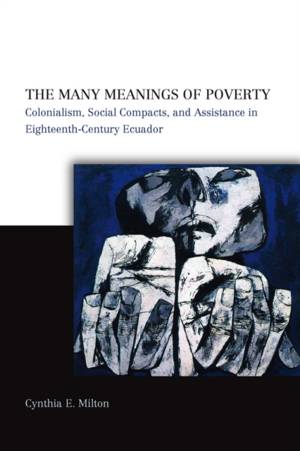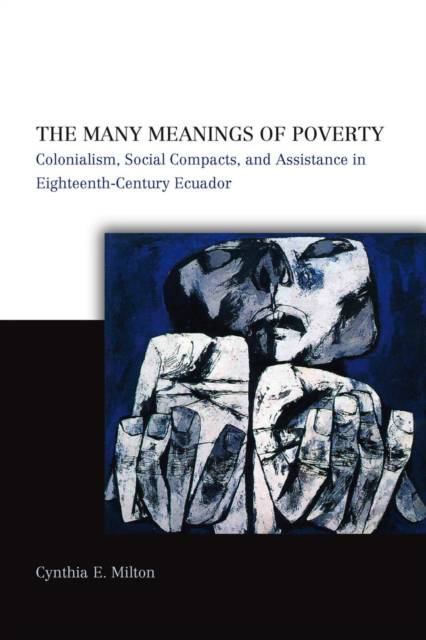
- Retrait gratuit dans votre magasin Club
- 7.000.000 titres dans notre catalogue
- Payer en toute sécurité
- Toujours un magasin près de chez vous
- Retrait gratuit dans votre magasin Club
- 7.000.0000 titres dans notre catalogue
- Payer en toute sécurité
- Toujours un magasin près de chez vous
The Many Meanings of Poverty
Colonialism, Social Compacts, and Assistance in Eighteenth-Century Ecuador
Cynthia E MiltonDescription
This book analyzes the diverse understandings of poverty in a multiracial colonial society, eighteenth-century Quito. It shows that in a colonial world both a pauper and a landowner could lay claim to assistance as the "deserving poor" while the vast majority of the impoverished Andean population did not share the same avenues of poor relief. The Many Meanings of Poverty asks how colonialism shaped arguments about poverty--such as the categories of "deserving" and "undeserving" poor--in multiracial Quito, and forwards three central observations: poverty as a social construct (based on gender, age, and ethnoracial categories); the importance of these arguments in the creation of governing legitimacy; and the presence of the "social" and "economic" poor. An examination of poverty illustrates changing social and religious attitudes and practices towards poverty and the evolution of the colonial state during the eighteenth-century Bourbon reforms.
Spécifications
Parties prenantes
- Auteur(s) :
- Editeur:
Contenu
- Nombre de pages :
- 384
- Langue:
- Anglais
Caractéristiques
- EAN:
- 9780804751780
- Date de parution :
- 07-09-07
- Format:
- Livre relié
- Format numérique:
- Genaaid
- Dimensions :
- 183 mm x 233 mm
- Poids :
- 653 g

Les avis
Nous publions uniquement les avis qui respectent les conditions requises. Consultez nos conditions pour les avis.






